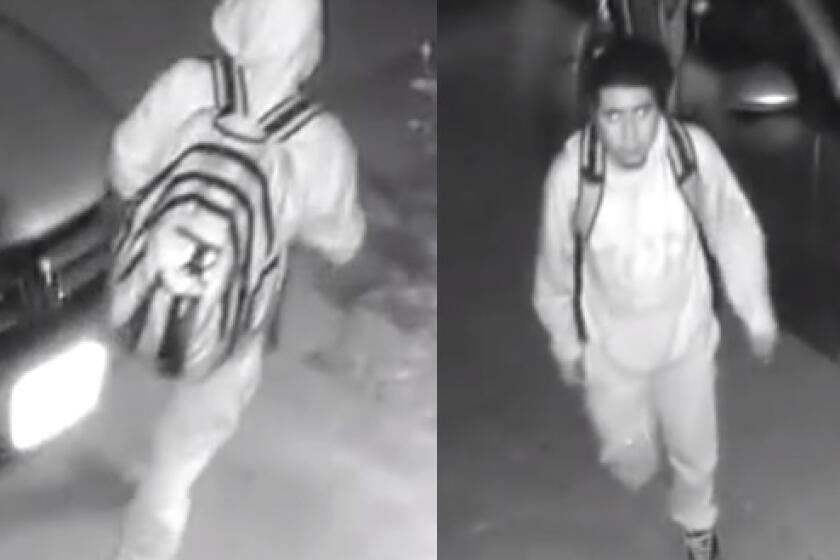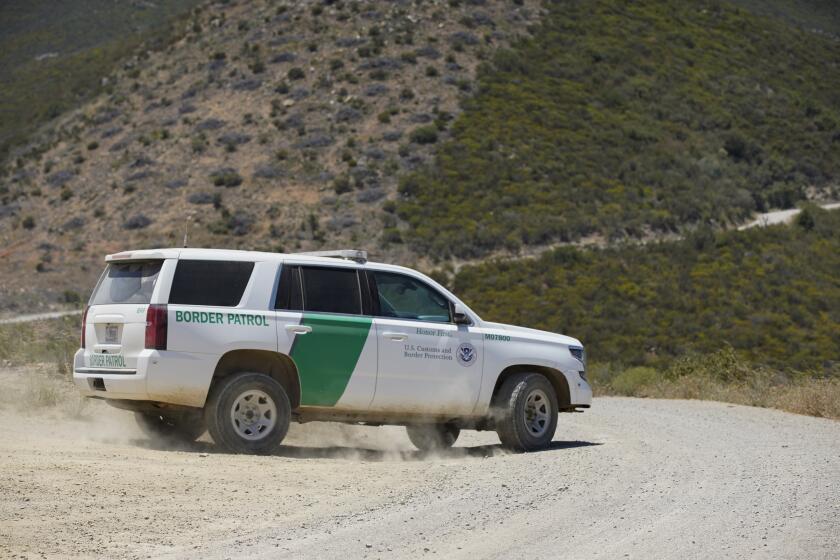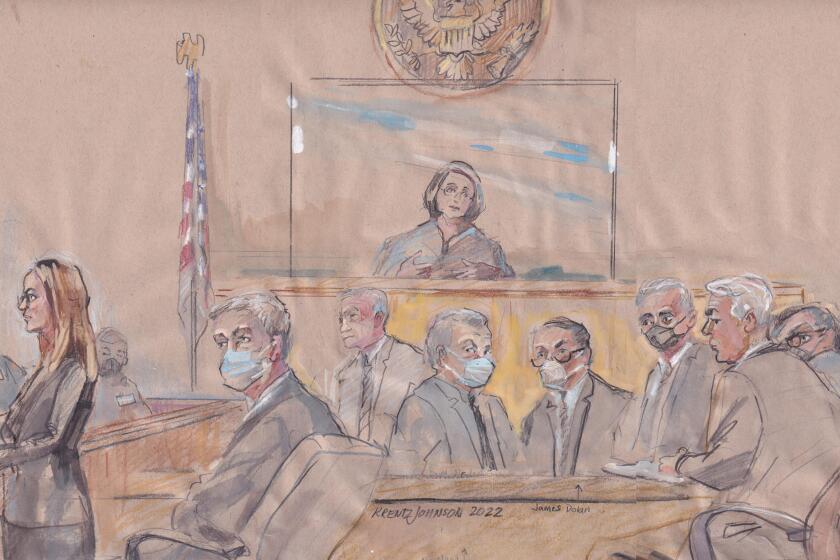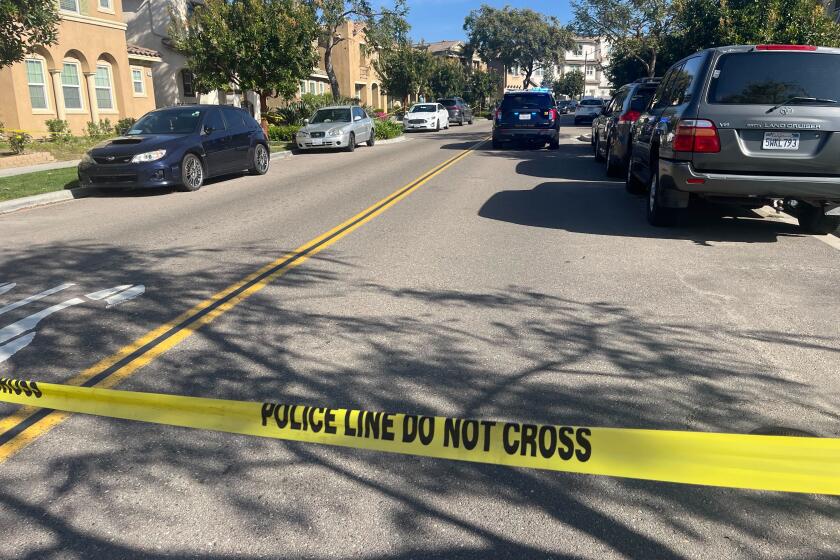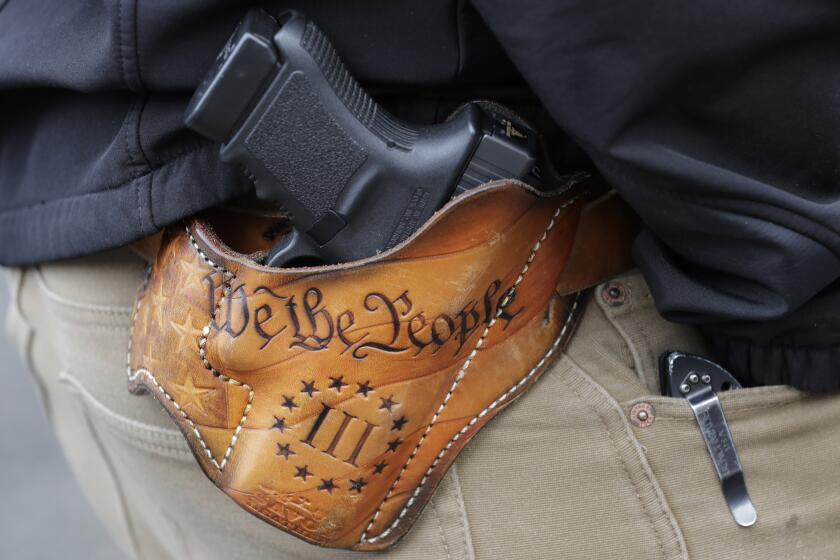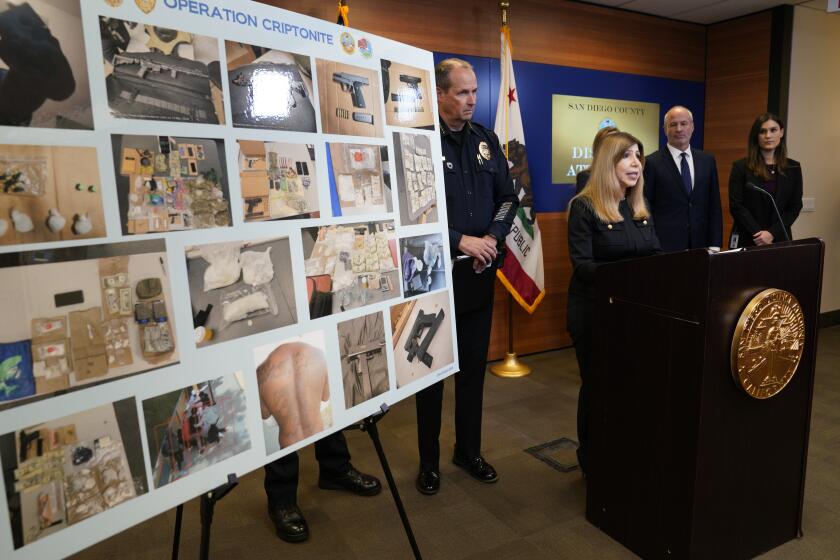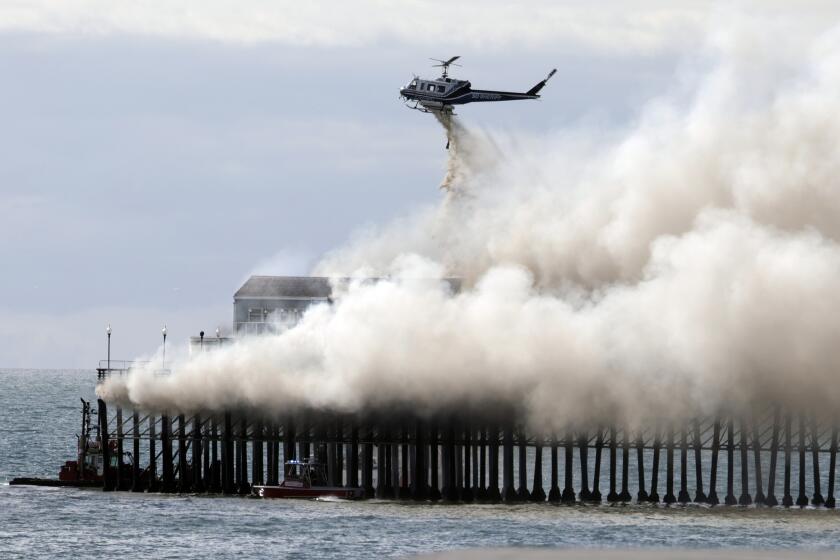‘May soon be unable to provide civilian oversight’: Police commission asks for emergency appointments
San Diego’s new Commission on Police Practices losing members to attrition, unable to add new commissioners during Measure B transition process
When 75 percent of San Diego voters approved Measure B in November 2020, it triggered the dissolution of the city’s existing police review board and the creation of a new Commission on Police Practices.
It also created a precarious situation for the commission during the transition process.
For the record:
3:36 p.m. Feb. 8, 2022This story originally misstated that Andrea St. Julian was among the community members and activists who did not want former members of the Community Review Board on Police Practices to become interim members of the Commission on Police Practices. Additionally, a quote from St. Julian, which appeared to only reference the issue of commissioner attrition, was actually in reference to the timeline regarding the commission’s overall implementation ordinance.
To complete the switch from the old board to the new, the City Council is required to adopt an ordinance spelling out the new commission’s rules and operational procedures. That process is ongoing after 15 months and could last another year or more, according to the commission’s projected timeline.
At the start of the transition period, the former review board members became the first members of the new Commission on Police Practices, carrying on the work in the interim while City Council drafts and revises the new commission’s governing ordinance.
But until the council formally adopts that ordinance, it cannot appoint new commissioners, according to language included in Measure B. That, combined with the natural turnover of volunteers and a recent spike in complaints against police, has created what the remaining commissioners described last month as an unsustainable workload.
“The Commission may soon be unable to provide the civilian oversight the community expects and demands,” commission Chair Brandon Hilpert wrote in a Jan. 26 letter to City Council.
According to the letter, approved unanimously by the commission during a Jan. 25 meeting, the commission should have 23 members when full, but currently has 14 active members and will be down to 13 by the end of March.
Hilpert said commissioners are volunteering 20 to 80 hours per month, and sometimes even more, as they try to keep on top of their duties, which for now include reviewing police shootings, in-custody deaths, other use-of-force incidents and complaints of police misconduct.
“It’s an unrealistic expectation,” Hilpert said in a phone interview last month. “Commissioners are getting burnt out, to be honest ... The remaining 13 just realistically can’t continue like this for another year.”
Hilpert said the old board — then called the Community Review Board — would close 55 to 65 cases on average per year. In 2021, while the number of active commissioners dwindled, the commission closed “well over 100 cases.”
Hillpert wrote that complaints have “increased tremendously,” explaining during an interview that he believes it’s because people are “much more willing to file complaints” in the wake of George Floyd’s death in 2020 and the social justice movement it sparked.
In their letter, the commissioners asked the City Council to craft a standalone ordinance — separate from the overarching one the City Council is currently considering — that “gives the City the ability to immediately begin Commissioner nominations and appointments.”
It’s unclear if the City Council will act on that request. In an emailed statement, Council President Sean Elo-Rivera said he is “in support of the Commission on Police Practices and implementation of Measure B,” but deferred to the Council committee that’s been working on the creation and implementation of the commission.
“As Council President, I trust the Chair and members of the Public Safety and Livable Neighborhoods Committee to thoroughly review and provide recommendations relating to the Commission,” Elo-Rivera’s statement said.
The chair of that committee, Council President Pro Tempore Monica Montgomery Steppe, declined to comment.
The Public Safety and Livable Neighborhoods Committee is scheduled to hold its monthly meeting Wednesday, but the commission’s request for emergency appointments is not listed on the agenda.
Andrea St. Julian, who authored the charter amendment that became Measure B, offered a mixed assessment of the commission’s request. St. Julian, who is co-chair of the community group San Diegans for Justice, said she’s not against City Council appointing new commissioners — but she said community members and activists involved in the push for Measure B did not want the members of the former review board to become commissioners in the first place.
“The community wanted new commissioners,” St. Julian said in a recent phone interview. “They wanted all of the interim commissioners out of there. They did not trust the former CRB members.”
Though the former review board members are acting in an interim role, they are considered full commissioners.
St. Julian ascribed the commission’s current predicament to the City Council and its Public Safety and Livable Neighborhoods Committee. She said the committee rejected requests by the commission to draft the governing ordinance in two phases, which likely would have allowed for nominations and appointments as the other rules and procedures for the new commission were ironed out.
“It is a created situation,” St. Julian said, referring not just to the commissioner attrition, but to the slow process of adopting the overarching implementation ordinance. “Public Safety and Livable Neighborhoods preferred to just do it all in one fell swoop. So we’re now in the situation where, 15 or 16 months later, it’s got to be done in a rush.”
Hilpert said the commissioners — back when they were still on the review board — foresaw the current situation and tried their best to remedy it. In October 2020, as polling made clear that Measure B was likely to pass, Hilpert sent a letter to the City Council urging it to move forward with the confirmation of seven new members.
That letter made clear that if Measure B passed, the review board members would become “the interim Commission” and the City Council would be unable “to make appointments for any vacancies until an implementation ordinance is adopted.”
The council filled all but one of the review board’s 23 positions before the election.
The latest news, as soon as it breaks.
Get our email alerts straight to your inbox.
You may occasionally receive promotional content from the San Diego Union-Tribune.

